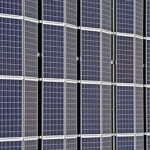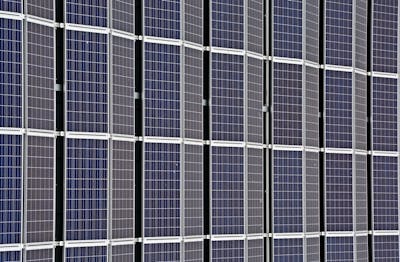Cutting energy costs and reducing carbon footprints become achievable goals with expert commercial solar solutions. Tailored designs optimize large industrial spaces, turning unused roofs into powerful energy generators. Beyond savings, these systems offer predictable expenses and support net-zero commitments, making solar a smart, sustainable investment for any business ready to future-proof operations.
Essential Guide to Commercial Solar Energy Solutions for Businesses
When considering Commercial Solar Energy Companies, businesses can select from a variety of commercial solar panel types monocrystalline, polycrystalline, and thin-film all suited to different rooftops and energy needs. These systems are designed for straightforward installation, whether on large industrial rooftops or ground-mounted setups, taking into account system size, desired energy output, and local grid requirements.
Also to see : Unlock substantial savings through professional solar energy services
Professional assessment is essential for mapping energy consumption and identifying optimal placement to maximize energy generation and cost savings for business properties. Once installation begins, qualified engineers handle equipment mounting and commissioning, ensuring seamless system integration and minimal disruption to daily operations.
The core benefits are clear: substantial long-term reduction in energy bills, enhanced business sustainability, and improved insulation against market price swings. Efficient commercial systems also help companies reduce their carbon footprint, supporting net zero strategies. Businesses can often benefit from tax incentives and flexible financing solutions tailored for commercial projects, making solar a highly attractive investment for organizations of any size.
Additional reading : What Are the Keys to Success in the UK Business Landscape?
Financing, Incentives, and ROI for Commercial Solar Projects
Funding Options for Solar System Ownership
Businesses have several financing choices to make commercial solar installations accessible. The most common are Power Purchase Agreements (PPAs), asset finance, and direct investment.
- PPAs allow businesses to benefit from solar power with no large initial outlay, where a third party funds and owns the system and the business pays only for the electricity used at a fixed rate.
- Asset finance spreads payments over time, making budgeting manageable and improving cash flow.
- Direct investment delivers full ownership immediately, which provides long-term savings but involves higher upfront costs.
Tax Incentives, Grants, and Rebates
Substantial support exists to reduce initial costs for commercial solar projects. Tax incentives such as capital allowances permit businesses to claim allowances on solar investments. Grants and commercial solar rebates may be available from government schemes or local authorities, significantly lowering the purchase and installation price. This makes the project more attainable for a wider range of businesses.
ROI, Lifespan, and Business Savings
A commercial solar system typically lasts 25–30 years, and many businesses see a return on investment within 5 to 8 years. Those with high on-site energy use experience even shorter payback periods. Systematic savings on energy bills, plus minimal maintenance needs, strengthen financial returns over time.
Advanced Technologies, Maintenance, and Partnering with Trusted Providers
Innovations in commercial solar battery systems and energy storage for backup and optimisation
Precision-driven solar technology now delivers robust commercial solar energy storage solutions. Modern systems integrate advanced lithium-ion batteries and scalable storage architectures—enabling businesses to store surplus energy and deploy it during peak demand or grid outages. This approach increases self-consumption rates, stabilizes operational costs, and provides reliable power backup. For energy-intensive sectors, such as manufacturing or logistics, optimised storage maximizes efficiency and minimizes reliance on external electricity sources.
Operational support: maintenance contracts, system optimisation, 24/7 technical assistance, and efficient asset management
Routine upkeep is minimal, but commercial solar panel maintenance contracts ensure systems remain at peak performance. Providers deliver system checks, cleaning, and immediate troubleshooting. With options like 24/7 technical support and proactive monitoring, businesses can resolve issues swiftly. Asset management now also covers recycling or responsible disposal of old equipment, ensuring sustainability throughout the lifecycle.
Evaluating solar providers: expertise, ongoing support, and selecting the best commercial solar solutions for industry-specific needs
Choosing among commercial solar installation companies hinges on demonstrated technical skill, experience across industries, and strong aftercare. Effective partners tailor solutions, offer ongoing system optimisation, and facilitate access to incentives or grants helping every business achieve optimal solar panel efficiency and long-term savings.











